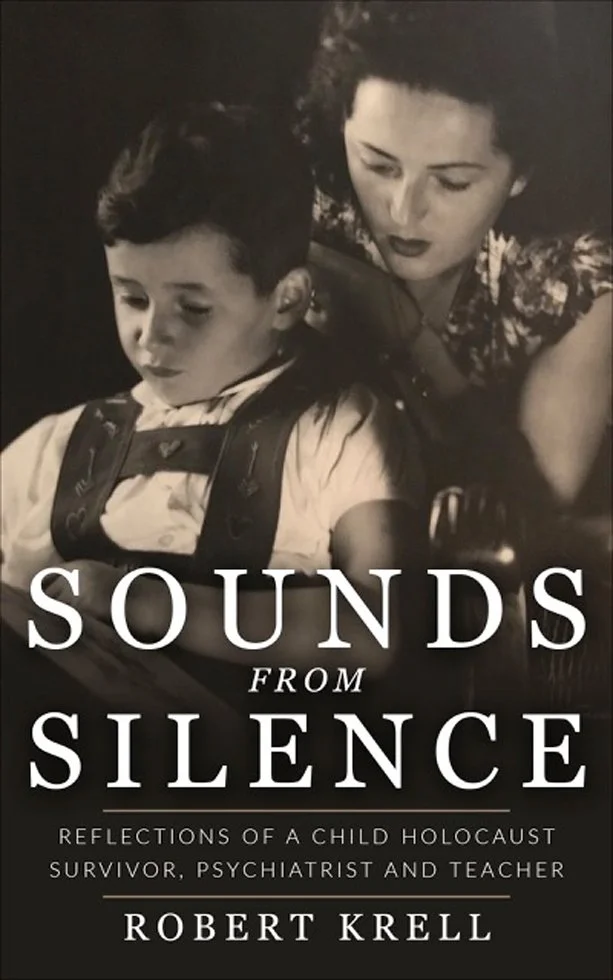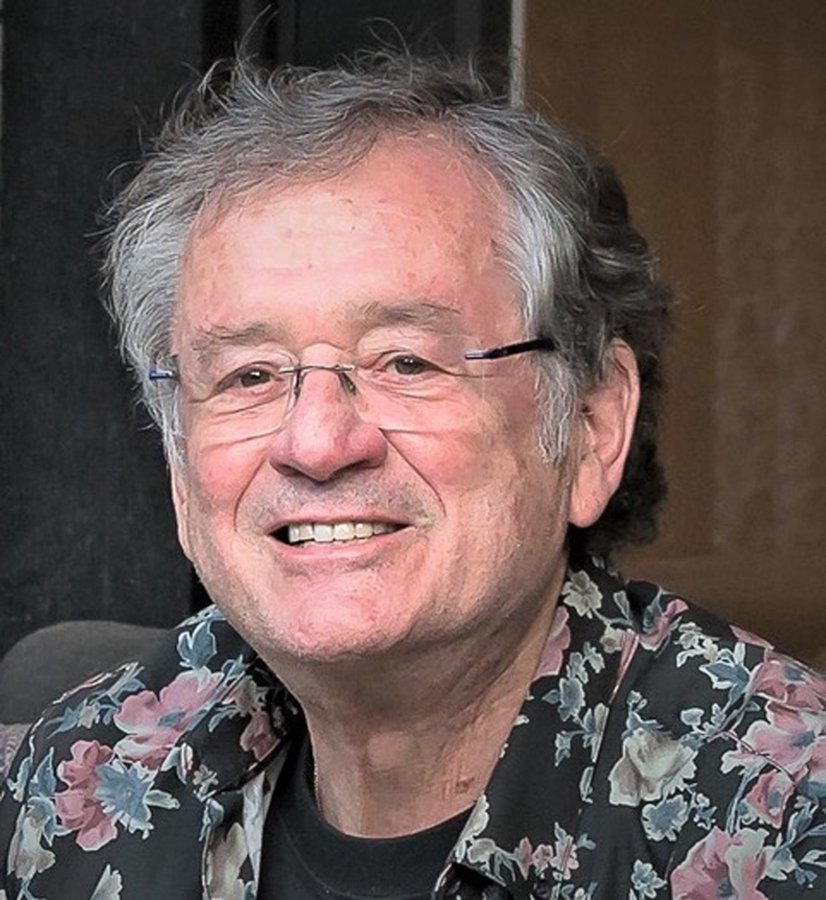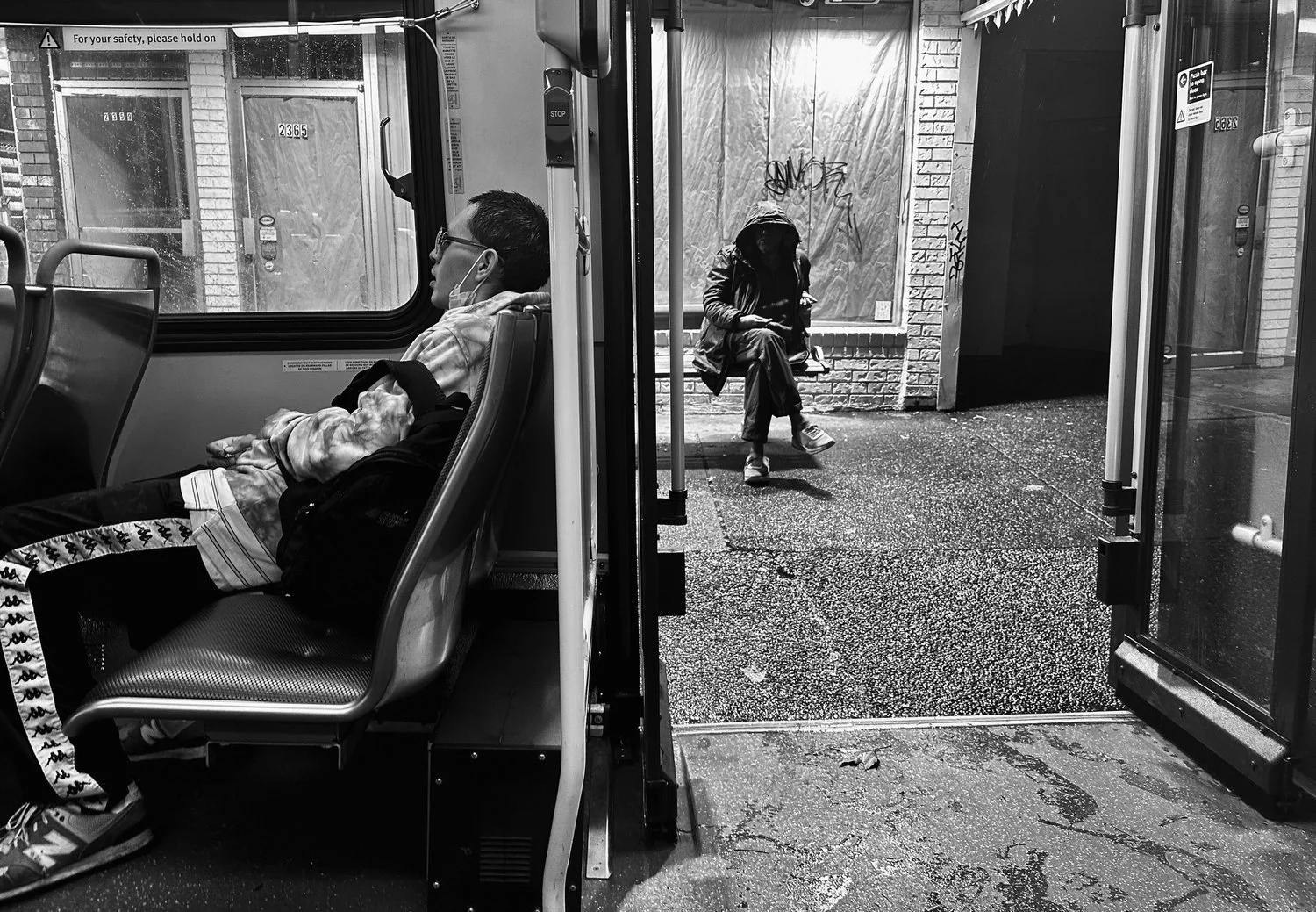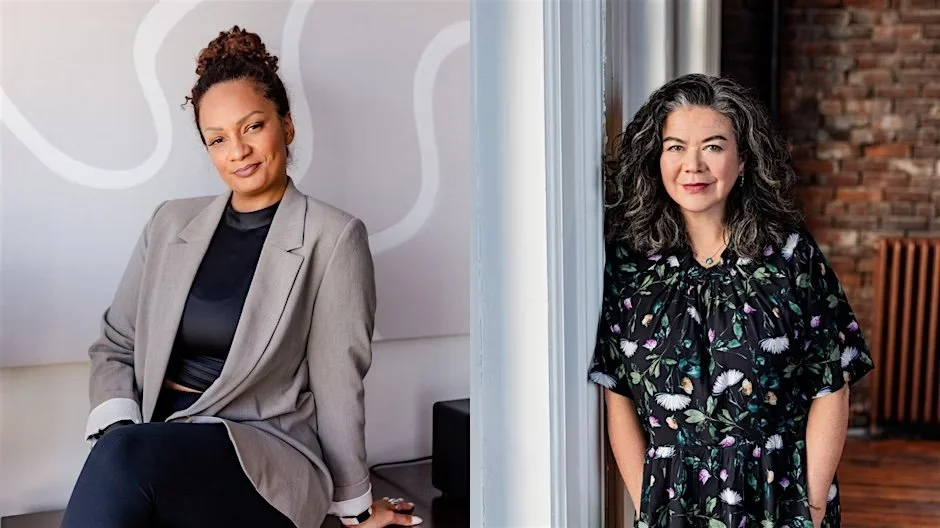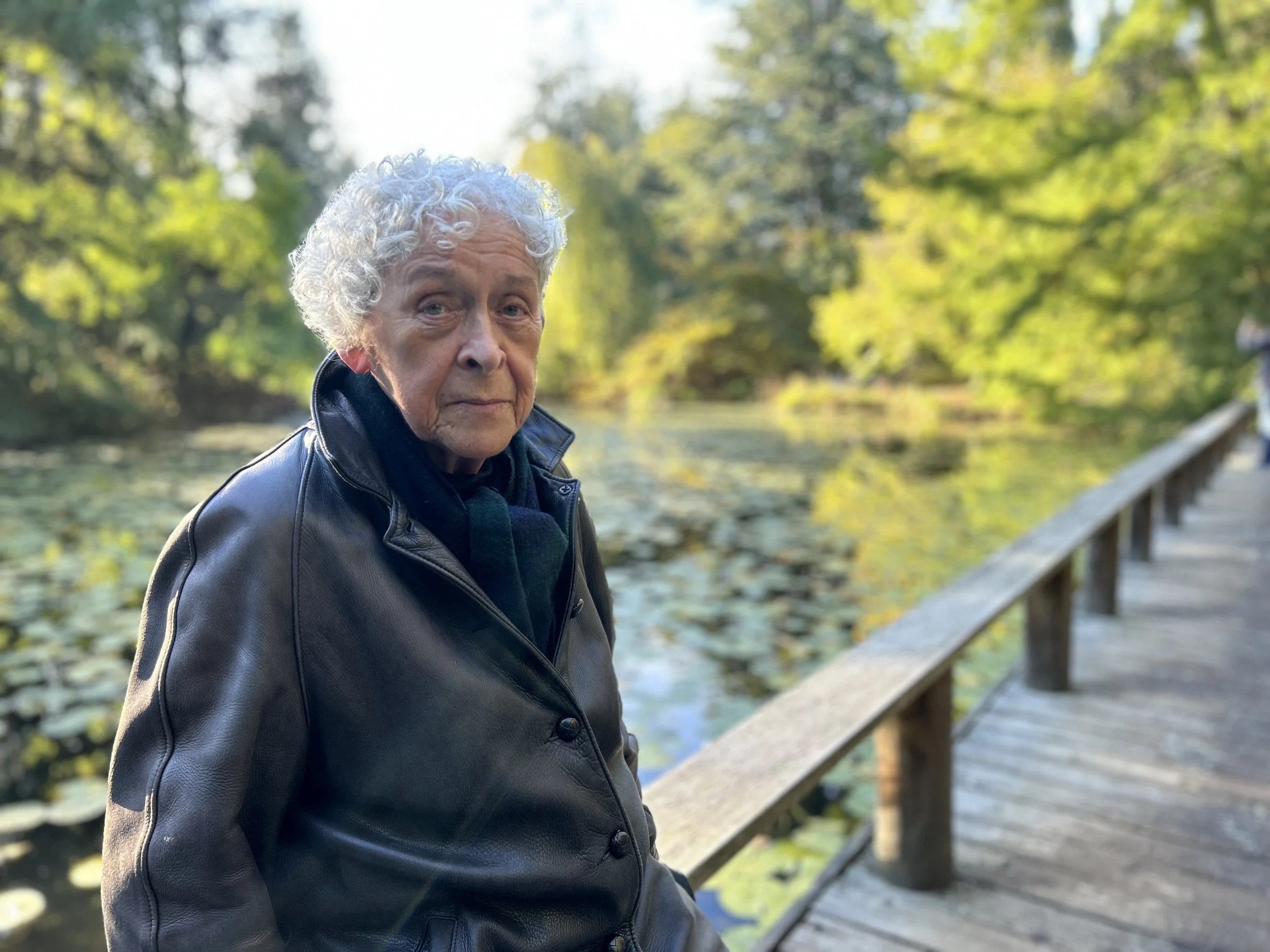Founder of Vancouver Holocaust Education Centre releases new memoir at JCC Jewish Book Festival 2022
A child survivor of the Holocaust, psychiatrist Robert Krell opens up about his life, work, and loves
JCC Jewish Book Festival 2022 presents the Epilogue Event on April 5 at 7 pm at the Jewish Community Centre -Wosk Auditorium and via livestream in partnership with the Vancouver Holocaust Education Centre. Moderated by Yosef Wosk, the free double book launch features Robert Krell, author of Sounds From Silence: Reflections of a Child Holocaust Survivor, Psychiatrist and Teacher; and Alan Twigg, author of Out Of Hiding: Holocaust Literature of British Columbia.
WHILE THE NEWS coming out of Ukraine is difficult for anyone to watch, it is especially heart-wrenching for Robert Krell. The retired Vancouver psychiatrist is a child survivor of the Holocaust, having stayed alive by hiding.
Krell, who is founding president of the Vancouver Holocaust Education Centre and has been appointed to the Order of Canada, is the author of the new Sounds From Silence: Reflections of a Child Holocaust Survivor, Psychiatrist and Teacher (Amsterdam Publishers). He was two years old when he was separated from his parents, his mother having the courage to leave him with virtual strangers in order to save his life, and five years old when they reunited. Now, as the world witnesses Russia’s brutal invasion of Ukraine, he cannot help but be taken back to those awful days of his early life.
“It is a demonstration of what happened to us, to the Jewish children,” Krell says during a phone interview with Stir. “It never escapes you. What I see is a new generation of youngsters being traumatized for life. You hope for a relatively quiet, normal childhood for a child to get started into what I’m sure is always going to be a more complicated life after; they’re not getting that. They’re being separated from their families, and it is painful to watch. But I know that my child-survivor friends in this city all are glued to their TV sets because they cannot look away.
“Having had an event that was so massive and involved so many perpetrators—not just Nazi Germany but all the collaborators, all of the countries who participated in Jewish hatred—with all the rest of the world standing by, one would have thought that that event would have cleared the deck in some way, would have made humanity step back and say it is not something we’re going to allow to happen again. But we’ve seen Cambodia and Pol Pot; we’ve seen the Rwandan genocide,” he says, pointing to other human massacres. “And now we see this spectacularly terrible, terrible thing unfolding right in front of our eyes on television. I had always had hopes and I guess a bit of a fantasy had there been good journalism and good coverage and TV cameras in and around Auschwitz that perhaps things wouldn’t have been so horrible. But in this technological age where you can view it, a travesty is going on in front of our eyes. It’s not Auschwitz, but it is awful.”
Robert Krell.
Following the war, Krell moved with his family to Vancouver, going on to become a professor of psychiatry at UBC and a busy practitioner. While directing a clinic for children, he treated adult patients in his private practice on the side, people who, like him, had lost their childhood to the Nazi regime. (He also treated Dutch survivors of Japanese concentration camps.) Over the years, he encouraged survivors not only to open up to him about their experiences but also to write them down for others to read and learn from. Because he had so urged so many others to do this, he ultimately felt that the least he could do was the same. He wrote the first draft of his memoir for his children, family, and friends. They pushed him to make it more widely available.
Sounds From Silence: Reflections of a Child Holocaust Survivor, Psychiatrist and Teacher is a gripping read that weaves in so many different parts and times of Krell’s life, from the sight of German soldiers as he peeked out the windows of the third-floor apartment he found himself living in as a toddler; to his handing out of his father’s business cards in Vancovuer after they moved in 1951; to his 1982 sabbatical at the UCLA Neuropsychitratic Institute; to the very first meetings about the Vancouver Holocaust Education Centre in his back yard; to falling in love with his wife Marilyn, his rock; to the rebirth of an entire family that includes his three duaghers and nine grandchildren; and beyond. It’s a vital contribution to a canon whose authors will soon be no longer; in the near future, there will be no eye witnesses to the Holocaust left.
“It’s always in one’s mind, and as life progresses and you get a little older, you know it is important to remember the Holocaust, and one way is through survivors writing their memories down,” says Krell. “That massive catastrophe is probably the biggest single human disaster to dominate the last century and has many implications for us in life today. It teaches us many lessons, or it should. Speaking about it was very difficult, but I urged others to speak about it. Writing about it was difficult, but I always urged others to write about it. Thank goodness for the survivors, because they have left a lot of testimony, and their children and grandchildren are busy learning.”
One aspect of the Holocaust that is widely overlooked, Krell says, is the way it “drew in every profession imaginable that is meant to protect us, including medicine, and began to kill us”. He explains that in 1933, Jewish doctors were thrown out, and non-Jewish doctors did not protest; rather, they developed more effective forms of euthanasia, “better and better ways of killing us”. The law was perverted to hurt Jewish people. “Don’t ever think for one moment that antisemitism is a danger only to Jews. You may be next. So now you have the medical profession and law profession; then we had architects building gas chambers for efficiency; chemists making poison gases to more efficiently murder people; theologians not protesting but advocating for the elimination of Jews in churches and sermons.
“So as an educator, my message from the Holocaust is you can no longer consider yourself a student of medicine, of law, of theology and philosophy and literature without being educated about the Holocaust,” he says. “It is a pivotal moment in human history and certainly modern history for us to consider, how every aspect of how we run our professions, particularly the ones that are supposed to look after us, we must monitor them to look after us.
Krell notes in the book that, like many survivors, despite the inescapable sorrow and pain he feels every single day—triggers are everywhere—he has had a happy life, with a wonderful, loving family; many dear friends; and successful and rewarding work. He hopes that young people will read his book. A common theme he gleaned from other survivors is at once complicated and simple: Be kind to one another.
And then there are the words of Elie Wiesel that have always stuck with him. The Romanian-born author of Night, a horrific and frank telling of his survival as a teenager in Nazi death camps, and winner of the 1986 Nobel Peace Prize, was a dear friend. “He said many meaningful things, but one thing he said was ‘A Jew is not allowed to lose hope,’” Krell recalls. “A Jew who looks at what happened to his or her people and could only feel despair must hope.”
ALAN TWIGG HAS dedicated his new book to Krell, “the MLK of Holocaust education in Canada”. Out of Hiding: Holocaust Literature of British Columbia (Ronsdale Press) is a cross-section of stories collected from British Columbia examining 85 authors and 160 books. Among the remarkable individuals captured in these pages are Rudolf Vrba, a whistleblower who is credited by historian Sir Martin Gilbert with saving at least 100,000 lives; and Robbie Waisman, presumed to be the only person ever to sneak his way into Nazi prison camps not once but twice.
With an afterword by Yosef Wosk, the book is the first of its kind to have a regional lens from North America. The author of 20 books and the founder and publisher of BC BookWorld, Twigg is a member of the Order of Canada and has received the Lieutenant Governor's Award for Literary Excellence.
For more information, see JCC Jewish Book Festival.



